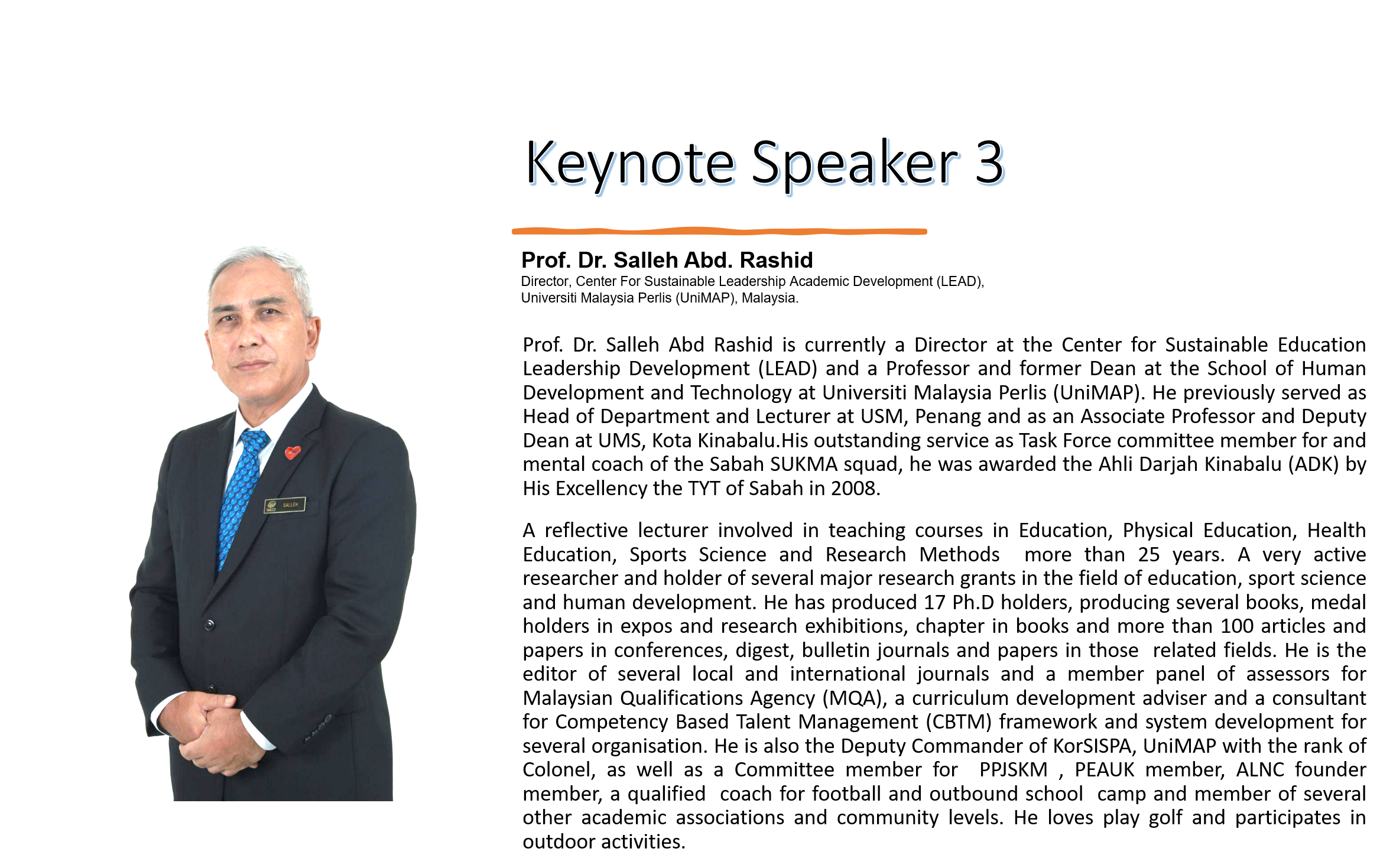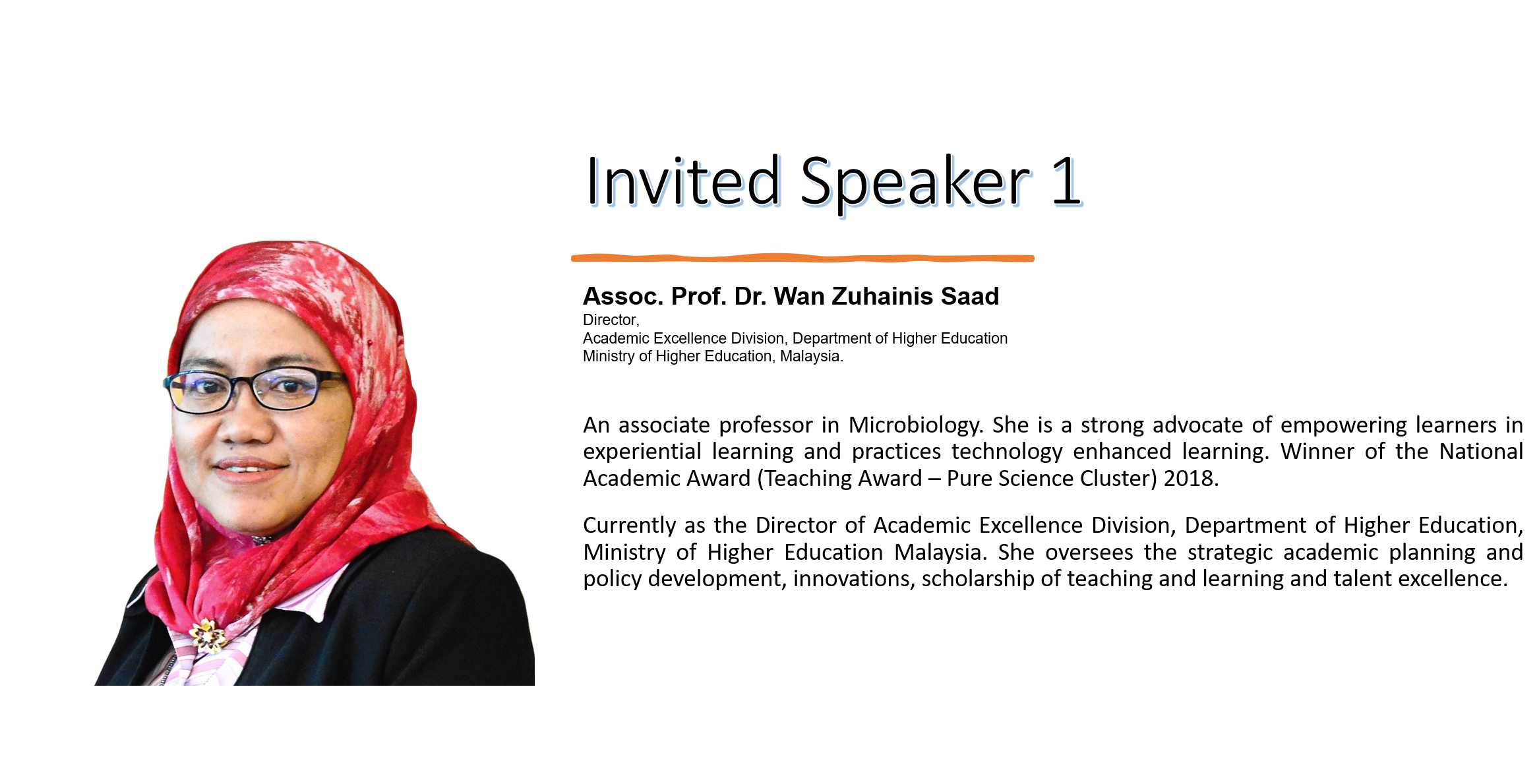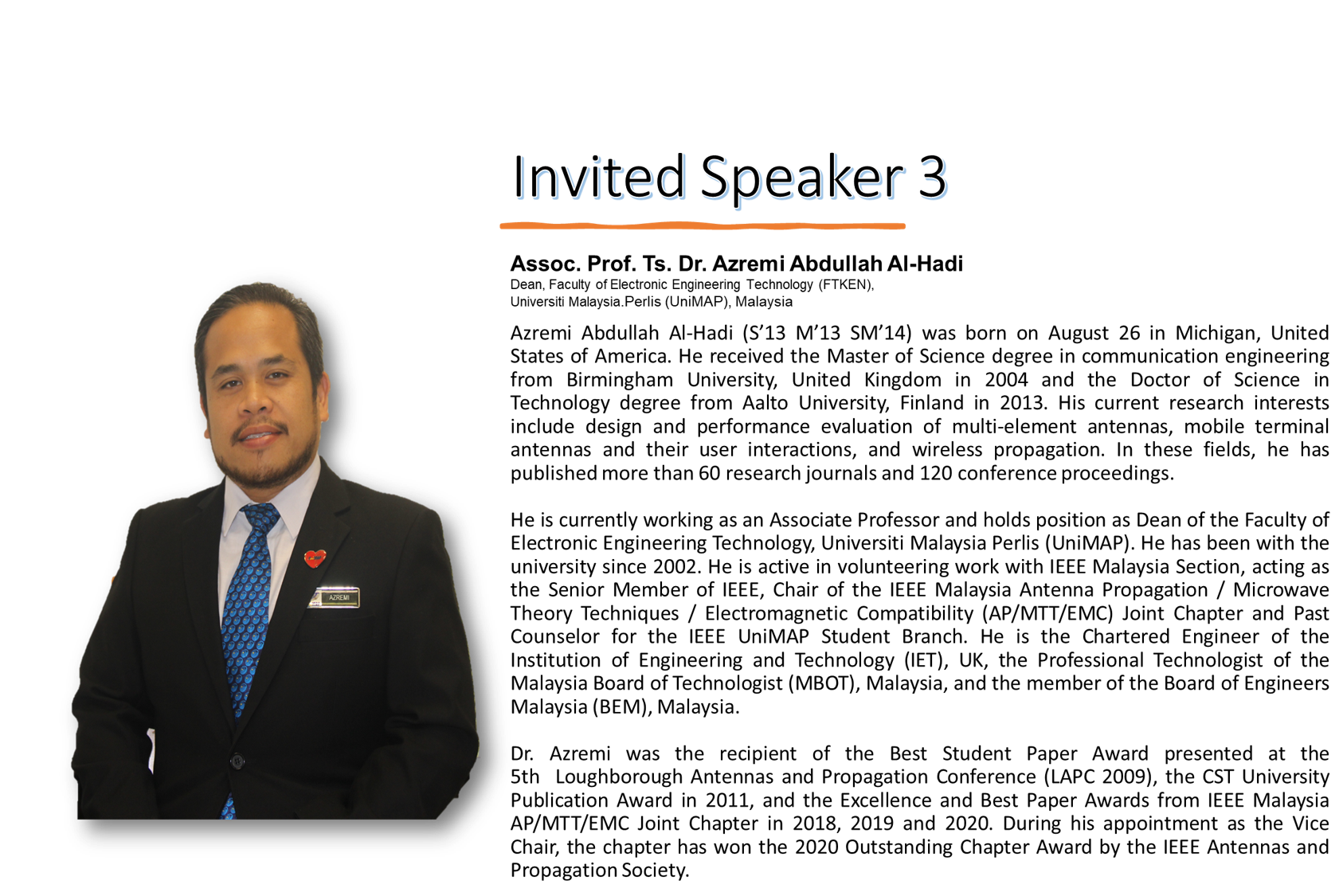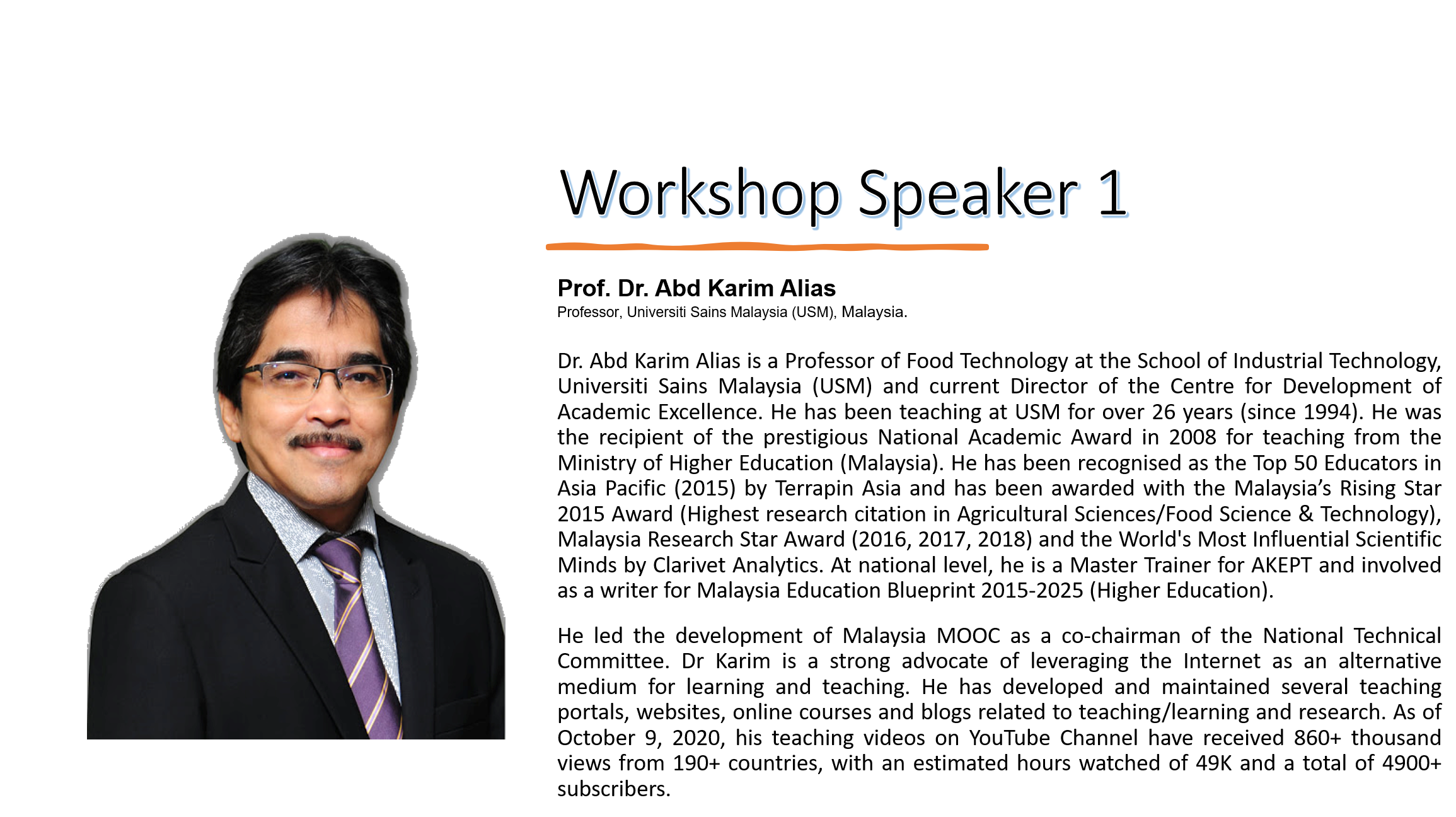.png)
.png)













WORK TOGETHER IN INTEGRATING QUALITY EDUCATION RESOURCES TO ADDRESS NEW CHALLENGES IN THE NEW NORMAL
With the rapid development of multi-polarization and economic globalization, as well as the worldwide ravages of COVID-19, the Asian higher education is facing many challenges, such as the stagnation of academic and cultural exchanges among universities around the world, the influence of the trend of de-globalization, and the unsatisfactory online and distance education models. Given the theme of AFW 2021, “Education under the new normal”, this speech discusses how Asian higher education can cope with the challenges under the new normal and seize the opportunities in times of pandemic and post-pandemic. Through actively participating in the construction of the Asian higher education community, constantly innovating the education system, sharing resources, and formulating collaborative education solutions in Asia, the level of Asian universities can be improved, and the education can achieve a win-win situation, thus promoting the development of Asian higher education.
EDUCATION OF THE NEW NORMAL: UPSKILLING AND RESKILLING, NAVIGATING THE NEW ENVIRONMENT AND PREDICTORS OF PERFORMANCE OF HEIs EDUCATORS
Once perceived as a temporary solution for surviving the COVID-19 pandemic, virtual learning, training and development are quickly becoming imperative to the future operating model for higher education. It makes sense: virtual mode ensures continuity and has also unlocked solutions to some of higher education’s toughest emerging challenges. The suggested hybrid approaches, creating a cultural condition blend between pedagogical and innovative technology and innovative changes made during the pandemic, encourages resilience, actives learning and enhances purposeful engagement to stimulate collaboration and participation and significantly impacted a key performance indicator – communication. Sustainability on creating a culture of connection, alignment, and growth and demonstrable value for learners and HEIs ROI, matching or exceeding what was being met in the conventional mode. This is learning and growing at the pace of change.
To be updated
To be updated
EDUCATION IN THE NEW NORMAL- REDEFINING TEACHING AND LEARNING
The present COVID-19 pandemic has brought extraordinary challenges and has affected the educational sectors, and no doubt it is a great source of understanding the capabilities of higher educational institutes in terms of infrastructures, sustainability, adaptability etc. The COVID-19 outbreak has compelled many universities to immediately switch to the online delivery of lessons. Many instructors, however, have found developing effective online lessons in a very short period of time very stressful and difficult. Even many instructors had faced difficulties using technology as all of them were not capable of using technology. Nevertheless, being adaptive in the new normal, the educational institutions have to adapt the resilient physical education system. This presentation will focus on giving a brief overview of the current situation of educational institutes, understanding the resilient education system, and a case study of a Daffodil International University on how they adapt the situation quickly, manage the institute with a proper learning management system and various other initiatives promoting and ensuring physical education.
REIMAGINEERING LEARNING IN THE NEW NORMAL
The measure of intelligence is the ability to change – Albert Einstein
The buzzwords that are heavily talked about are pandemic, the new normal,
COVID-19, digitalisation and disruption. In the new landscape of learning,
resilience, flexibility and adaptability will be crucial for the next generations.
Creating a culture of flexibility develops opportunities and excellence that will
enhance students’ experiential learning. If 2020 has taught us anything, it is
that the challenges and complexity in the pipeline have already met us here
today, and our world will continue to shape and evolve in a different matter
after this pandemic. This means we need to build on the curriculum and bring
in broader competences. Transformative curriculum with innovative delivery
in collaboration with industry and technology leaders, create opportunities for
immersive learning that enable students to translate their knowledge and
skills to the community and society. The next normal is all about riding the
waves in the VUCA world and responding to the dynamic and transient
environment. The future of education as many calls it will change the
teaching-learning methodologies to make the students resilient and change-
ready. It is time to witness this change and inculcate it in our lives so that we
can move towards a progressive, intellectual, knowledge-driven and future-
ready world.
REALISATION OF INCLUSIVE OPEN EDUCATIONAL RESOURCES
The UNESCO Recommendation on open educational resources (OER) was adopted unanimously by the UNESCO General Conference at its 40th session in November 2019. It supports the creation, use and adaptation of inclusive and quality OER and facilitates international cooperation. The Recommendation outlines five Areas of Action – (1) create, access, re-use, adapt and redistribute OER; (2) Developing supportive policy for OER; (3) Encouraging inclusive and equitable quality OER; (4) Nurturing the creation of sustainability models for OER; and (5) Promoting and reinforcing international cooperation in OER. Approximately one billion individuals have some form of disability. Due to a wide range of barriers to access education and limited infrastructures, learners with disabilities are denied their rights of being an integral part of the learning community. Sustainable Development Goals, SDG 4 calls for the international community to “Ensure inclusive and equitable quality education and promote lifelong learning opportunities for all’ with its key pillars of access, equity and inclusion”. Several higher education institutions in Malaysia have joined the open educational resources (OER) movement. However, not all OER are designed in an inclusive manner. An inclusive learning experience involves content, activities and resources that fit and can be adapted to everyone’s unique needs with minimal barriers. It is important to ensure that mainstreaming of accessibility and Universal Design for Learning (UDL) issues should be considered within a broader educational context of inclusive design for OER. However, there is not yet widespread understanding of inclusive OER and open licences due to the lack of a national policy governing the design, development and use of OER. Prof. Fong will share on a collaborative effort with UNESCO, MEIPTA, MYCEL, JPT MOHE and relevant NGOs in the realisation of a Policy on Inclusive OER.
OPPORTUNITY AND CHALLENGES OF FUTURE ELECTRONIC ENGINEERING EDUCATION
The rapid pace of technological innovation and advancement as in 5G/6G, artificial intelligence, Internet of Things, Automation and Robotics, as well as Industrial Revolution 4.0 have triggered extensive demand for electronics engineers in both research and development, as well as the education. Studies shows that overall employment of electronics engineers is projected to grow about 7 percent from 2016 to 2026, reflected by high employability and bright future in this area. Subsequently, as revolution is swiftly underway in various smart applications, the profession of electronic engineers perfectly fits it all. Generally, Electronic engineering graduates need to possess multidisciplinary know-how and skill set to match the upcoming challenges that the aforesaid industries bring. Nevertheless, the dynamic nature of the electronic industry is posing challenges to electronics engineering programs to keep pace with such explosive and abrupt changes in the electronics field. The urgency to project new directions for electronic education becomes more critical as societies are becoming more attached by electronics devices and systems. This talk will give an insight on the opportunities for future electronic engineering education in adapting into modern developed technologies. It will also cover trends, challenges and potential direction of electronic engineering education in the lights of the current online delivery in facilitating future electronic engineering during pandemic of Covid-19.
BUILDING A SMALL MICRO-CREDENTIAL MODULE
This interactive workshop will guide participants through the process of developing
a small but functional interactive online module suitable for a micro-credential programme.
Participants will leave the workshop equipped with the practical skills necessary to create their own online module.
MOOCs (Massive Open Online Courses) have been around for about a decade. MOOCs have seen a dramatic rise in demand during the pandemic, as measured by the number of enrolled students. In April 2020, the top three MOOC providers (Coursera, edX, and FutureLearn) added as many new learners as they did in the entire year of 2019. Around 25%-30% of these platforms' total registered users came following the pandemic.
This presentation will provide perspective on the future of MOOCs and online learning following the pandemic's conclusion.
IMPACTING LEARNING VIA ASSESSMENT IN HIGHER EDUCATION
Post covid-19 in Higher Education (HE) has led us to reconsider ways of ensuring that learning takes place, as well as the alternative ways of providing assessment whilst adapting to the ever compelling new normal. Being accustomed to a culture of tradition about what HE has been in the last century, has brought great challenges to change in the present even though we have been introduced to the notion of the fourth industrial revolution in education of the 21st century. The last two decades seem to propel us forward to two decades in the future and it all began in 2020.
A temporary halt to all education sectors has left no choice to educators at all levels but to change their normal ways of working to adopting full online alternatives. To many, this change has been a stressful trajectory of adapting to the new normal of working. When teaching and learning in HE, which normally includes rows of young adults seated in a lecture hall and perhaps students doing some student-centered learning activities in the hall, teaching in the new normal is now just via a computer or other available gadgets (handphone, tablets etc.) in the respective homes. When assessment was contentedly done via high stake exam format in a massive hall and rounds of close monitoring done to ensure those caught copying put to justice, the assessment in the new normal now includes discussions on proctoring, software with similarity index, and other measures to curb online and offline plagiarism. However, not all HE is ready for the infrastructure and more than that, not all students learning from home and the areas in which they live in, are supported by technology due to basic issues such as limited internet access and unreliable devices and technological support. So, the question is how can we, despite the constraints, ensure that learning takes place via alternative assessment so that we can ensure sustainable quality of education can still be achieved in the new normal? Discussion in this session involves the roles, readiness and commitment of various stakeholders as well as understanding the challenges faced within their contexts. This must be done before we begin searching for workable solutions.
PROMOTING COGNITIVE ENGAGEMENT DURING ONLINE REMOTE LEARNING
Amid COVID-19, the teaching and learning at higher education has to go on. However the shift towards online teaching and learning abruptly affected the way how the students learn and how the educators teach.
The T&L becomes mundane with almost no engagement from the students side, lost of motivation in learning and the students feel lost especially when they feel there is no stimulation to their cognitive engagement. In this workshop, the participants shall be exposed to the definition of cognitive engagement, how to differentiate between behavioural engagement and cognitive engagement and what can be done to promote cognitive engagement among the students in our class. Some case studies shall be shared and discuss during the workshop.
.png)

